The western side of the North Coast 500 that stretches from Kyle of Lochalsh to Durness through Wester Ross and Sutherland is arguably Scotland’s most beautiful landscape. Endless rugged mountains, windswept beaches, cliffs, and lochs define this vast region where tiny roads straggle where they may. Natural splendor is incredibly abundant, perhaps to the expense of everything else. You won’t find any distilleries out this way, few golf courses, and while the region has a lot of history it doesn’t usually take the form of ruined abbeys, castles, and stately manses. The Highland Clearances hit the northwest highlands hard, so the history here is the absence of people, tales on the wind, and a somber intuition of things unjustly lost.
There is, however, one castle that bears mentioning: Ardvreck Castle. Ardvreck is a striking ruin standing on a small promontory in the eastern reaches of Loch Assynt. This part of the northwest highlands unfurls beneath big skies and rolling hills like Quinag, and Ardvreck is a majestic site as you curl east on the A837. The castle is a great stop on a loop that takes in Achiltibuie, Lochinver, and the Bone Caves of Inchnadamph, and that is when I stopped to investigate one of the only significant castles in the northwest highlands.
Angus Mor III of Clan MacLeod built Ardvreck Castle in the latter half of the 15th century as a basic rectangular block that was probably three or four storeys tall. In the usual fashion, his descendants upgraded and expanded the castle, specifically Donald Ban IX who, a century later, added the tower and vaulted ceilings. It’s hard to argue with Angus Mor’s siting of the castle. The promontory is easily defended, and at some point in the past a stone wall was built over an earlier earthen rampart that cut off the promontory from the mainland.
Ardvreck Castle was a small bastion even at the height of its glory. Other buildings were needed to house the kitchens, servants quarters, and stables, though it seems Ardvreck possessed a dungeon for one James Graham, Marquis of Montrose, was imprisoned here in 1650 after his defeat at the Battle of Carbisdale. At the time Montrose was considered a traitor by the highland clans because he fought for the Royalists, and after the battle he sought refuge with the MacLeods of Assynt. The chieftain at the time was away and his wife tricked Montrose into the dungeon and called for the Covenanter government’s troops. They took Montrose to Edinburgh where he was summarily executed. For as often as I hear about old-school highland hospitality, history sure has a few hideous black eyes for it.
As the years wore on the MacLeods were vilified for their part in Montrose’s execution, and in 1672 the MacKenzies of Wester Ross began a 14-day siege to claim the castle. This siege marked the end of MacLeod ownership of Ardvreck Castle.
In 1726, Kenneth MacKenzie built Calda House for his wife who turned up her nose at Ardvreck Castle’s grim austerity. Calda House was a beautiful and symmetrical modern mansion with an M-gabled roof that influenced many future lairds’ houses in Wester Ross. But the extravagance was costly. The MacKenzies were in debt for supporting the Royalist cause and Kenneth’s wife was a bit loose with the pence, and this led to the Earl of Sutherland claiming Assynt from the MacKenzies with the help of government involvement. There was too much enmity between the clans for such a slight to pass unremarked, so MacKenzie supporters burned down Calda House after vowing no Sutherland should ever live there.
Ardvreck Castle was struck by lightning in 1795, a wicked backhand from Mother Nature that ensured the impossibility of any rebuilding attempts. The two structures have remained ruins ever since. Ardvreck Castle has been the setting for so much bloodshed and violence that it should come as no surprise the ruins are rife with hauntings. If you look closely at the beach you might see the weeping daughter of a MacLeod chief who drowned in Loch Assynt after making a pact with the Devil to save her father’s castle.
Ruined castles are my aesthetic, and Ardvreck is a nice one in a beautiful location. Assynt, and Sutherland in general, is an austere place where the romance of Scottish highland history is not far beneath the surface.

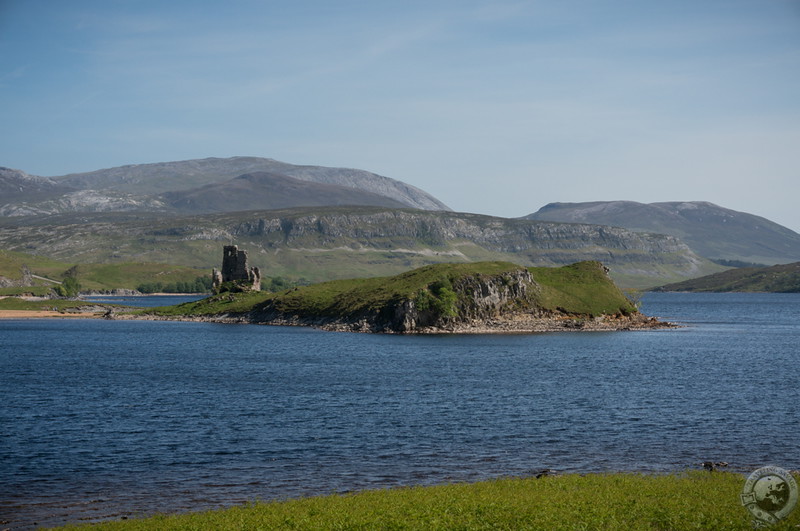
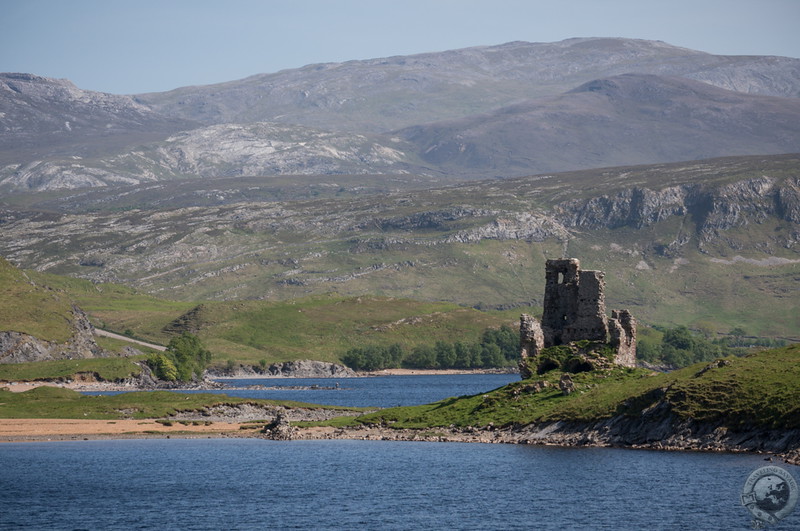
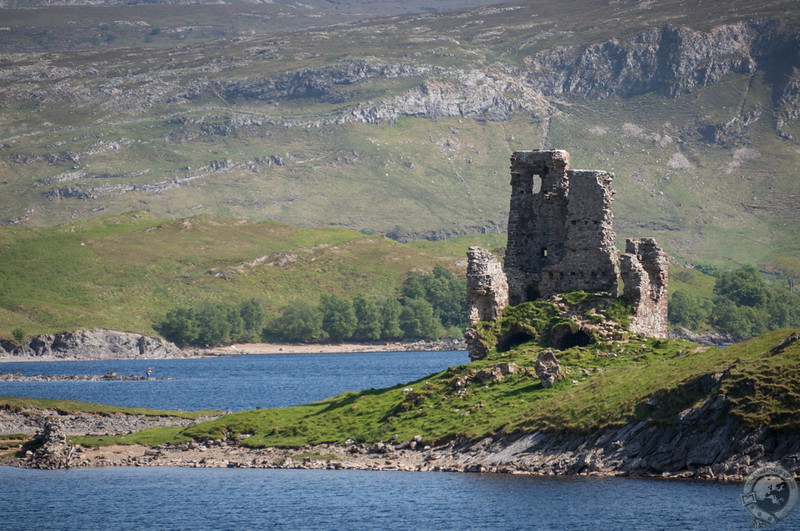
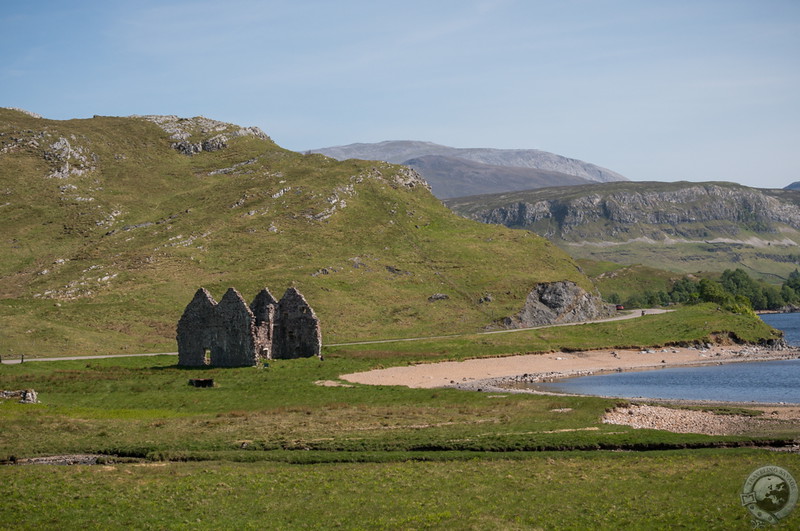
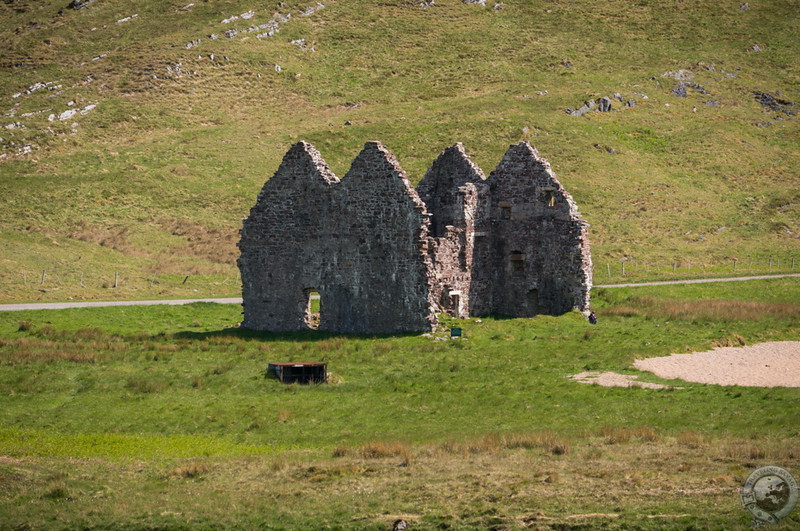
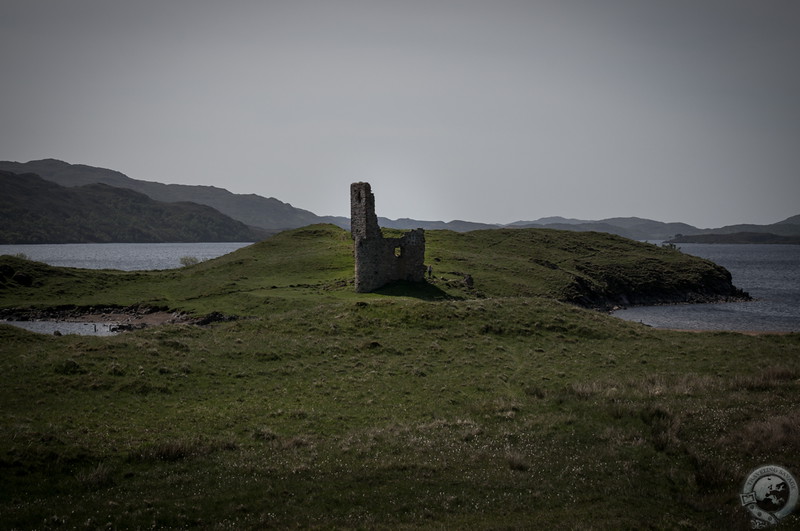
thank you, Keith, for another wonderful post. this one is special for me, as in two months only we shall see the Ardvreck castle with our own eyes during our trip to North Western parts of Highlands! Ardvreck is one of the “musts” in our itinerary 🙂
It’s a fun visit. Enjoy your trip!
Love the history of this castle. Thanks for sharing, and the beautiful photos.
You’re welcome!
Thanks, Keith, for writing more about Assynt and western Sutherland. My husband and I will be there in a few weeks. We are traveling by campervan through the western highlands from Glen Creran (must see the Fairy Bridge!) to Durness. We are considering visiting Strathnaver in the interior as well as it is the site of the most notorious of the Highland Clearances. Did you visit that area on your trip last year?
I drove through Bettyhill on my way to Wick but did not stop at Strathnaver. Seems interesting though!
Hi Teresa and Keith – I am planning a trip to Scotland for me and my husband, earliest would be Sept, more likely next spring, and want to travel by campervan, like we do here at home in Canada! Do you have suggestions for leasing a campervan? Or are you in Scotland and have your own van? Any suggestions are welcome!
Sharon Miller,
We did a lot of research on hiring campervans in Scotland. We are using Killiecampers.com located between Pitlochry and Killiecrankie north of Perth. We are flying into Glasgow and taking a train to Perth, then Pitlochry via Scotrail. They lease a new very luxurious model Toyota Granvia campervan that is beautiful. It only sleeps two, however and doesn’t accept pets. We found their prices to be very reasonable. You can rent older VW campervans from several places as well. Check out the VisitScotland website and click on accomodations then campervan hire. Good luck!
Still counting the days !!!
Treasuring your words and history lessons for when we too are able to walk in the places you describe with such passion
Kind regards and many thanks
Alison
Looking forward to hearing about your trip, Alison.
My husband is descended from James Graham, so it was quite a treat to see his name in your blog today! I love hearing the details of their lives, even if they were unfortunate! I’m curious how the wife lured him into the dungeons… sounds a bit scandalous maybe! 🙂
The pictures are stunning, and I love a good haunting tale. Maybe this will be added to our list of places to visit if we ever make it over there!
Awesome! I don’t know the details of Lady MacLeod’s ploy, but the imagination serves wonderfully in their absence 😉